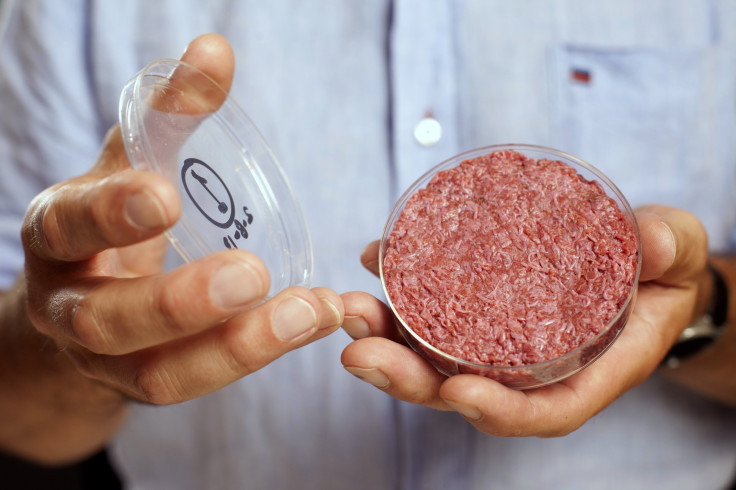Soylent Yum? Food Technologists Pitch Cultured Meat, Algae As Futuristic Protein Sources

Algae and lab-produced hamburgers will be making their way to a menu near you, if scientists have their way. New protein sources were the talk of the Institute of Food Technologists conference this week.
Cultured hamburgers -- meat made from bovine stem cells and grown in a lab -- are already being produced, said Mark J. Post, a professor of vascular physiology and tissue engineering at Maastricht University. While the patties look and feel like a traditional hamburger, scientists are still working on the taste. Since the stem cells grow muscles, not fat, the cultured meat is less flavorful. When three people tried out the burger in 2013, they said that the texture felt like meat, but that it tasted like "an animal protein cake," the New York Times reported.
While Post is confident that the problem isn’t insurmountable, there's another stumbling block for cultured beef: the price. Currently, a kilo -- a bit more than two pounds -- of cultured meat is about $300,000, but projections suggest it could drop to $65 a kilogram -- or around $32.50 per pound.
The process is also time-consuming. It took two years to create enough meat for one burger.
Meanwhile, algae, quinoa and beans were also touted as vegan protein sources. Algae, which food developer Solazyme says is 63 percent protein, is already ready for consumers. Algae flour, which goes by the name AlgaVia, is used in a variety of products from protein shakes and sauces to cereals and breads.
Expo floor is now open! Come try our #GlutenFree #EggFree oatmeal raisin cookie with #AlgaVia lipid powder #IFT15 pic.twitter.com/nFL5A4b9g7
— Solazyme (@solazyme) July 14, 2015Both protein sources would be better for the environment because the raising of farm animals releases methane, which contributes to climate change. Algae has a comparable carbon footprint to rice and soy, Solazyme said.
In other news, researchers at Oregon State University have unveiled an alternative to bacon -- yes, bacon -- made from red marine algae. Suddenly the world seems like a better and healthier place. We can't wait to eat up.
© Copyright IBTimes 2025. All rights reserved.






















